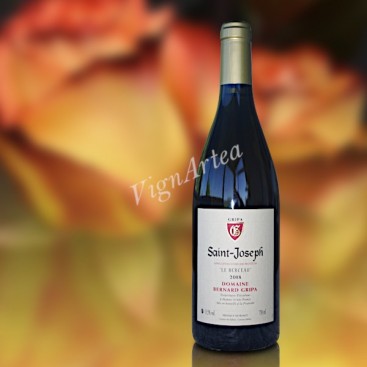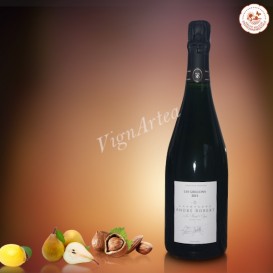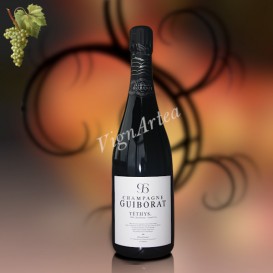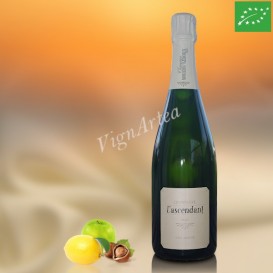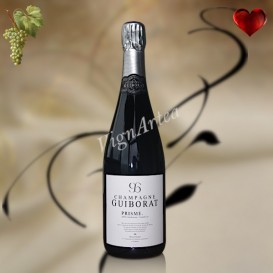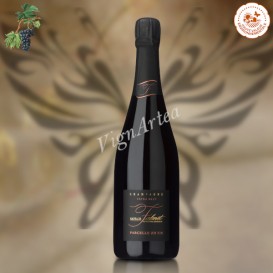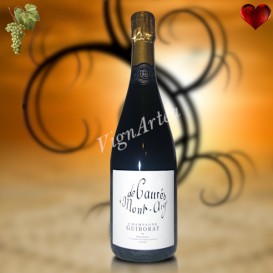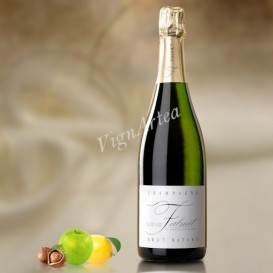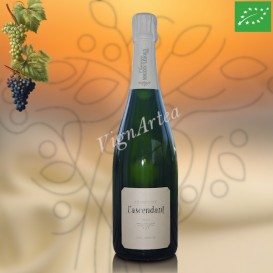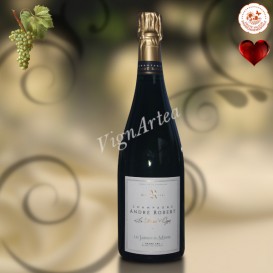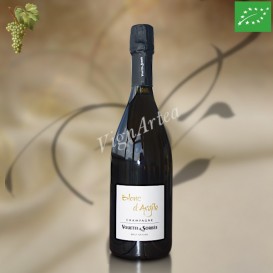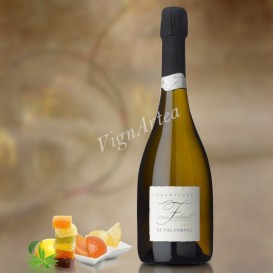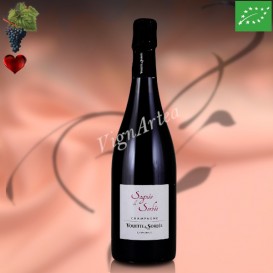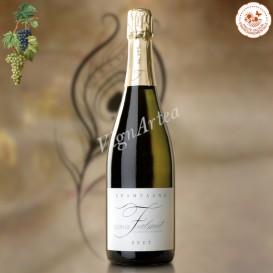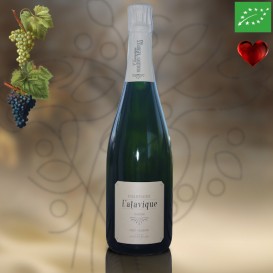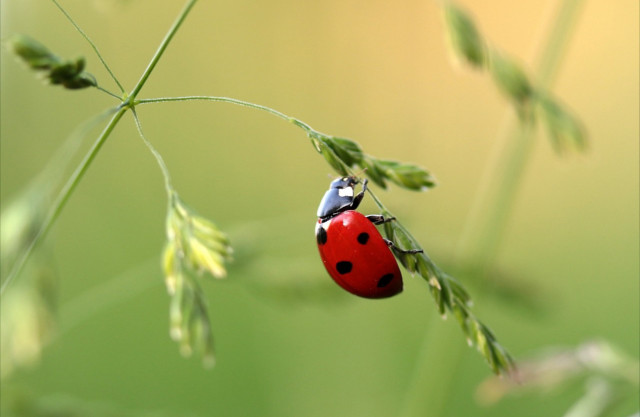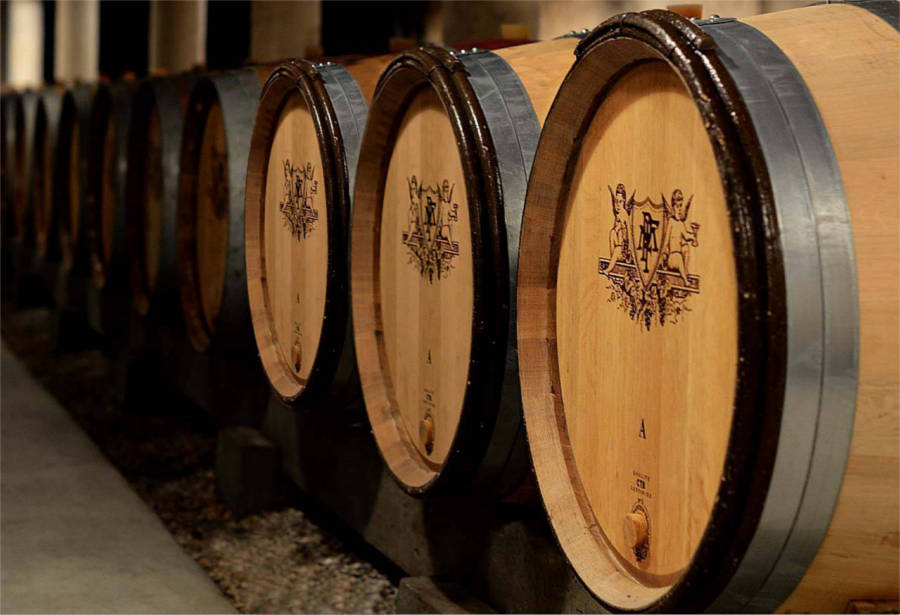WHITE SAINT-JOSEPH Le Berceau 2018 (Domaine Gripa)
RHÔNE VALLEY - AOP SAINT-JOSEPH - DRY WHITE WINE
Grape variety: Marsanne (100%)
Old vines Native yeasts
Lees ageing of 12 months in french oak barrels
- Nose: subtle and fine. Aromas of acacia honey, ripe apricots and pears with light aniseed notes.
- Palate: full and tasty. Slightly aniseed finish.
- Tasting date: May 2020
- OUR OPINION: a honeyed vintage with a touch of acidity that makes it very tasty!
DESCRIPTION
The wines with the mention "Le Berceau" on the label come from plots located in the historic district of the Saint-Joseph designation recognized by the INAO in 1956.
The white LE BERCEAU wine is a 100% Marsanne wine, whose very old vines are more than 80 years old yet they still allow a good yield of around 40 hl / ha.
TERROIR
The locality of Saint-Joseph, where the plots of "Le Berceau" wines are located, consists of granite soil called the Granite de Tournon. This granite is said to be with 'biotite', meaning it contains black mica, and it formed in the Precambrian, 600 million years ago : of intrusive origin, it is made by a magma rise into the mantle.
This very hard soil, not very conducive to a good root penetration, is nevertheless perfectly suited to the vine, because of one of its properties : it becomes brittle over time. The rock is therefore extremely faulty, the granite having cracked under the action of rainwater which penetrates into the rock crevices, freezes in winter and causes the rock to burst. It is therefore through these cracks that the vine roots penetrate the rock to find water and nutrients.
The Marsanne variety likes particularly this type of terroir, it is a naturally low-acid grape variety which claims a terroir of high quality as the Granite de Tournon is, in order the wines to have sufficient energy and liveliness.
WINEGROWING & WINEMAKING
The vines are planted on terraces located on the steep hillsides of a place called Saint-Joseph. The very important slope of this place prevents any mechanization and all the care brought to the vineyard is consequently entirely manual, the harvests too.
Once picked, the grapes are brought to the winery and then gently pressed by slow pressing. The harvested juice is settled for 24 hours then it is transferred to 228 liter oak barrels for alcoholic fermentation. When the latter is finished, the must continues its malolactic fermentation and then matures on fine lees for almost a year.
The bottling is generally done in September of the year following the harvest one.
| Country | Rhône Valley |
| Color | White |
| Orange wines | No |
| Clay amphorae wines | No |
| Type | Dry |
| Vintage | 2018 |
| Single Grape Variety | Marsanne |
| Alcohol rate | 13,5 % |
| Quality Designation | Saint-Joseph |
| Cellar Potential | 10 years |
| Service advise | 14°C (57°F). In the first years, decant the wine one to two hours before serving. |
| Culture Methods | Sustainable cultivation method |
| Comments | Yield : 40 hl/ha ♦ Fermentations and ageing in228 l oak barrels for one year. |
Riche et concentré en arômes, ce vin s'accorde parfaitement sur une brandade de morue lorsqu'il est bu dans sa jeunesse. Avec l'âge, il acquiert des arômes d'acacia, de miel et d'amandes grillées qui magnifieront les plats cuisinés à la truffe noire comme des coquilles Saint-Jacques ou des ravioles à la truffe. Du côté des fromages, il remplace aisément un vin rouge sur un saint-marcellin bien crémeux et coulant.

